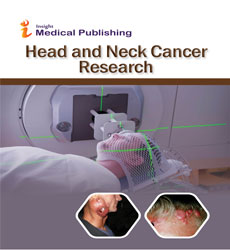Angiogenesis in Head and Neck Cancer
Denaro N
Santa Croce e Carle General Hospital Cuneo, Italy
Received Date: 2022-05-10 | Accepted Date: 2022-05-16 | Published Date: 2022-05-25Abstract
Locally advanced Head and Neck Squamous Cell Carcinoma (HNC) is a challenging disease for the lack of effective therapies even in the era of molecular medicine (the five-year survival does not exceed 40%). For patients with metastatic and recurrent HNC, the standard treatment is the combination of Cetuximab/Platinum and Fluorouracil but the median overall survival rate for this population remains lower than 11%. The main reasons for these disappointing outcomes include acquired drug resistance, anti Epidermal growth factor variants, epithelial to mesenchymal transition, and tumor hypoxia. Angiogenesis plays a crucial role in HNSCC development and proliferation. Drugs may interfere with the angiogenic process via different mechanisms and there is a sound rationale for combining anti-angiogenic agents with chemotherapy or multiple anti-angiogenic strategies. Promising preclinical results with angiogenic inhibitors have engendered a number of trials, but until now there are not yet conclusive data on the value of anti-angiogenic therapy in HNC. This paper aims to review the role of angiogenesis inhibitors in head and neck cancer.
Open Access Journals
- Aquaculture & Veterinary Science
- Chemistry & Chemical Sciences
- Clinical Sciences
- Engineering
- General Science
- Genetics & Molecular Biology
- Health Care & Nursing
- Immunology & Microbiology
- Materials Science
- Mathematics & Physics
- Medical Sciences
- Neurology & Psychiatry
- Oncology & Cancer Science
- Pharmaceutical Sciences
